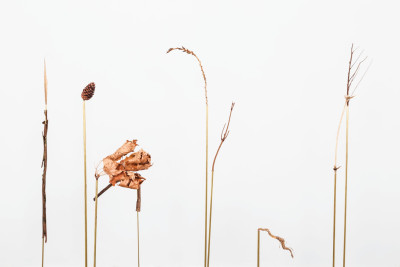Neo-Baroque gardens such as the Körnerpark were intended to illustrate the dominance of man (or order) over nature (chaos). If the baroque garden is supposed to symbolise the triumph of man over nature, what happens when asymmetry, chaos, deviation, in other words, nature, takes over? Much of what we understand by aesthetics and design today can be traced back to these Baroque ideas: that symmetry, standardisation and normality are synonymous with aesthetic beauty. What if we looked for beauty in chaos, disorder and otherness? What if we embraced nature and all its deviations and enjoyed the pleasure of difference?
The exhibition presents artists who make art about the body and its relationship to nature, gardens, plants and ecological systems. What are their visions of the future, their potential utopias that defy the norm? How might a paradigm shift in our understanding of nature restore our relationship with the natural world? The artists explore the theme of difference as beauty in a variety of ways. Some explore the misbehaving body, while others explore the environmental context in which we live: nature and its cycles, the rhythms of reproduction as a force that resists capitalist structures that harm the human body.
Unruly Splendour is curated by Kate Brehme and Kirstin Broussard of Berlinklusion, Berlin’s network for accessibility in art and culture, led by Dirk Sorge, Jovana Komnenic, Kirstin Broussard and Kate Brehme. It is a collective of disabled and non-disabled artists and art educators who aim to positively transform Berlin’s cultural landscape by promoting inclusion and improving accessibility for artists, cultural workers, participants and audiences with and without disabilities.
The exhibition celebrates the aesthetics of access and promotes exchange through accessible exhibition design. It is informed by the curator’s experience of disability and work at the intersection of curating and art education. It builds on recent exhibitions such as The Space Between (CLB, Berlin, 2023) and To/From (Kommunale Galerie, Berlin, 2023-2024), where the collective sourced and selected otherwise marginalised artists, but also integrated multi-sensory design elements into the exhibition to enable accessible participation by our visitors.
With the support of Aktion Mensch
Curatorial assistance: Diana Nowak

























